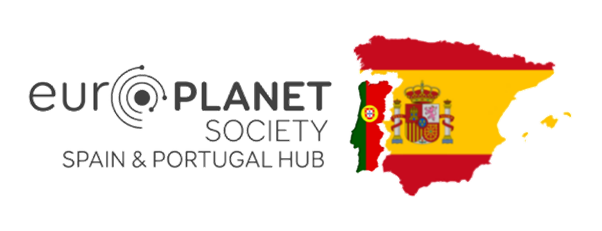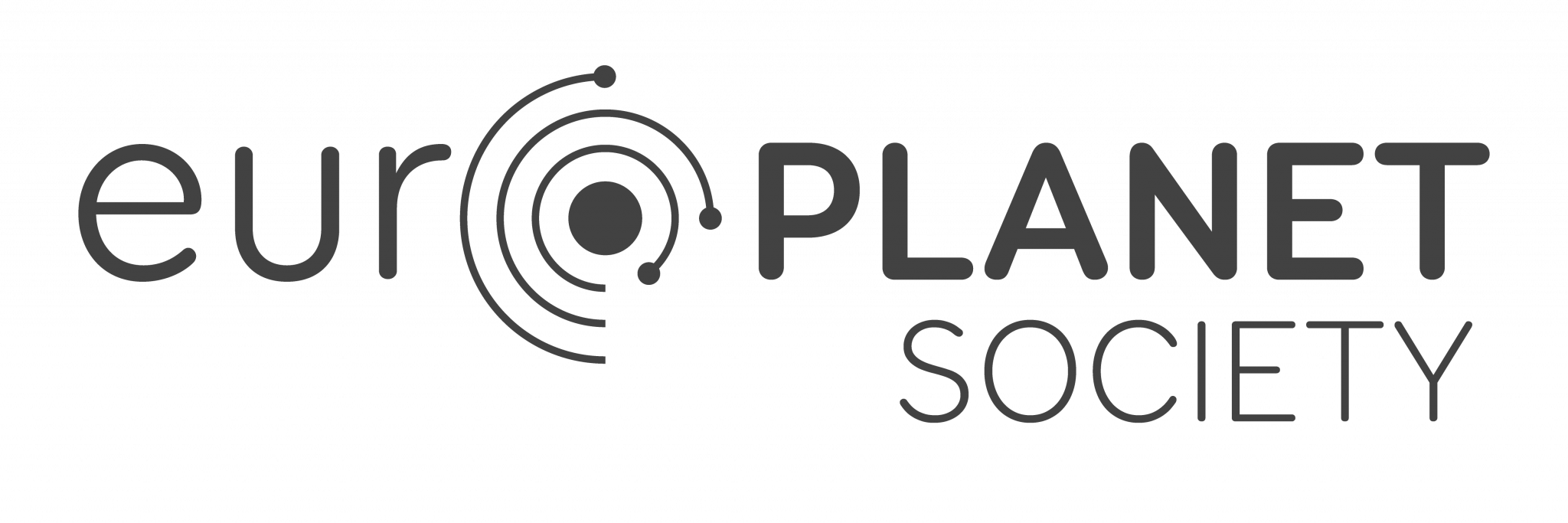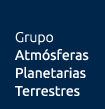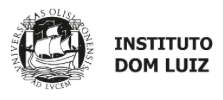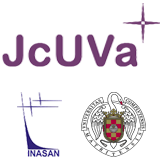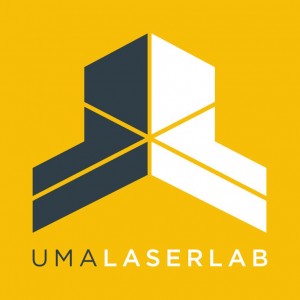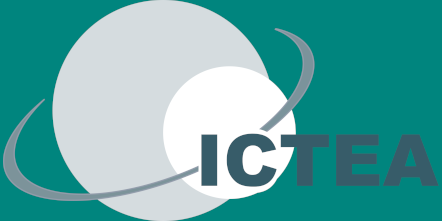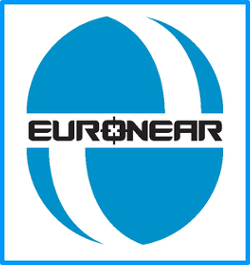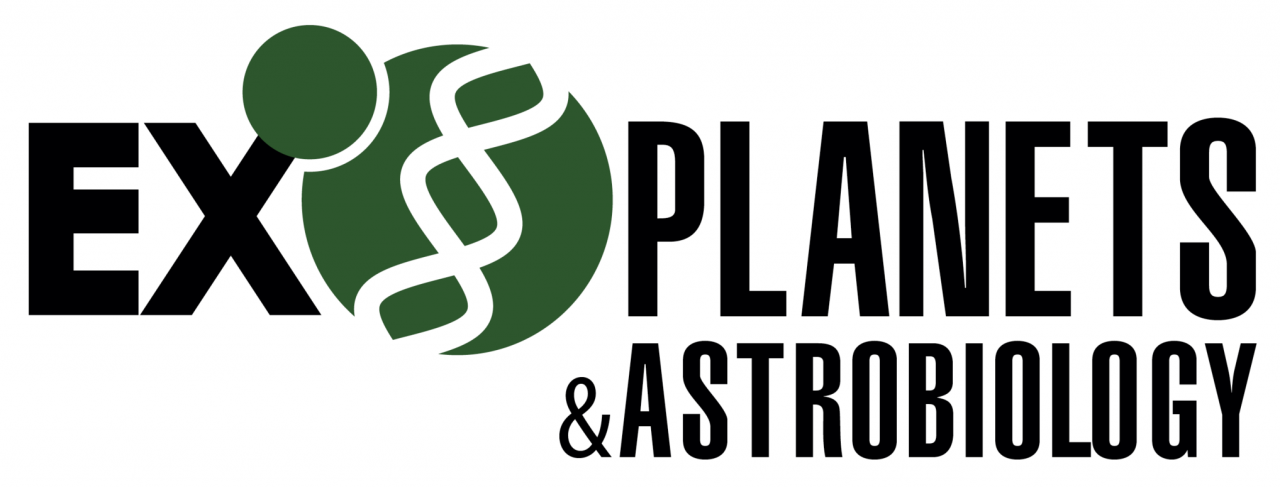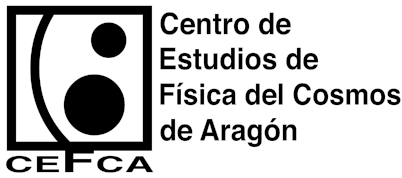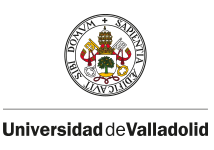Outreach
Activities
Facilities
Ground Based Telescopes
Planetary Sciences
in Spain and Portugal
Industry
& Stakeholders
Scientific
Conferences
Members
Europlanet Society
Amateur
Community
Networking
Hub Activities
Professional
Community
Space
Exploration
Community
Table of Planetary Research groups in Spain and Portugal
| Location / Institution | Group / Contact | Description / Resources / Missions ... | ||
| Alicante | ||||
|
|
This email address is being protected from spambots. You need JavaScript enabled to view it. |
Physics and dynamics of small solar system bodies Missions: Hera-Dart Others projects: CFEPS, NEO-MAPP |
||
|
Sistemas de Potencia y Electrónica Espacial This email address is being protected from spambots. You need JavaScript enabled to view it. |
Power Systems and Electronics for Space Missions | |||
| Barcelona | ||||
| Meteoritos, asteroides, cometas y ciencias planetarias
This email address is being protected from spambots. You need JavaScript enabled to view it. |
Meteorites, Asteroids, Comets and Planetary Sciences Infrastructure: Laboratory Missions: Hera-Dart, Stardust, Hayabusa Others projects: Red de Bólidos SPMN-FRIPON |
|||
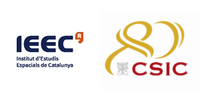 |
|
Modelling of stellar variations associated with magnetic activity and the understanding of high-energy emissions of stars. exo-planets and their evolution over time. Infrastructure: Laboratory Missions: ARIEL, PLATO, CHEOPS Others projects: CARMENES |
||
 |
Instituto de Técnicas Energéticas This email address is being protected from spambots. You need JavaScript enabled to view it. |
Meteorite Sample Analysis Laboratory Infrastructure: Laboratory |
||
 |
|
Instrumentation development Infrastructure: Instrumentation Missions: MSL/REMS, Insight-TWINS, Mars2020/MEDA, LISA Others projects: Europlanet, MiniPINS (ESA) |
||
 |
GAA - Grupo Astronomía y Astrofísica This email address is being protected from spambots. You need JavaScript enabled to view it. |
Space missions: ground segment and payload | ||
| Bilbao | ||||
|
|
Atmospheres of planets and exoplanets Missions: Mars Express/VMC, Venus Express/VMC/VIRTIS, JUICE/JANUS/MAJIS, JUNO, Cassini-Huyges, Mars2020/MEDA/SuperCam e Insight Observatories-Instruments: PlanetCam, PlanetCam-NIR Others projects: Europlanet, Aula Espazio Gela |
|||
|
Meteorites and materials / instruments for space missions Infrastructure: Laboratory Missions: ExoMars/RLS, Mars2020/SuperCam |
||||
| Coimbra | ||||
|
Celestial Mechanics This email address is being protected from spambots. You need JavaScript enabled to view it. |
Solar System Dynamics, Exoplanets, dynamical Systems, Planetary Physics, Tidal effects |
|||
|
This email address is being protected from spambots. You need JavaScript enabled to view it. |
Planetary geology of minor bodies of Solar System: Kuiper Belt, TNO, comets, NEOS, etc |
|||
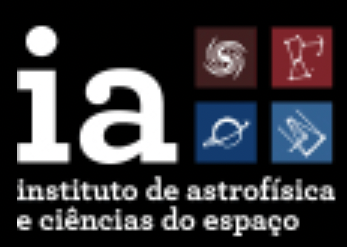 |
Toward the detection and charaterization of other Earths Nuno Peixinho / Pedro Lacerda |
Minor bodies of the solar system/space debris
|
||
|
i-ASTRO Space Instrumentation for Astrophysics This email address is being protected from spambots. You need JavaScript enabled to view it. |
Space Instrumentation for Astrophysics Infrastructure: Laboratory for Gamma-ray and X-ray instrumentation |
|||
| Granada | ||||
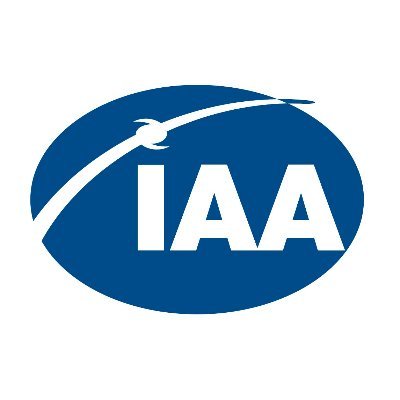 |
Atmósferas Planetarias Terrestres This email address is being protected from spambots. You need JavaScript enabled to view it. |
Atmospheres of Earth, Mars, Venus, Titan and exoplanets Missions: TGO/NOMAD, TMED/SABER, Envisat/MIPAS Observatories-Instruments: SATI, MIMA Others projects: Europlanet, UPWARDS |
||
 |
Cuerpos Menores del Sistema Solar This email address is being protected from spambots. You need JavaScript enabled to view it.
|
Asteroids, comets, trans-Neptunian objects, ... Missions: Rosetta/OSIRIS/GIADA, Comet Interceptor Observatories-Instruments: ESBO Others projects: NEOS |
||
 |
This email address is being protected from spambots. You need JavaScript enabled to view it. |
Heliophysics and solar magnetosphere Missions: Solar Orbiter/PHI Observatories-Instruments: EST, SUNRISE/IMaX+ |
||
 |
Plasmas en Atmósferas Planetarias This email address is being protected from spambots. You need JavaScript enabled to view it. |
Lightning and transient electric discharges in the atmosphere and in the laboratory Infrastructure: Laboratory Missions: ISS/ASIM, ISS/TARANIS Observatories-Instruments: GRASSP, GALIUS, ORISON |
||
 |
This email address is being protected from spambots. You need JavaScript enabled to view it.
|
Giant planets, Titan, Mercury, comets Infrastructure: Instrumentation Missions: Bepi/BELA, JUICE/GALA/JANUS, Comet Interceptor/CoCa/MANIAC/EnVisS/OPIC, EnVision/VenSpec |
||
 |
This email address is being protected from spambots. You need JavaScript enabled to view it. |
Mineral dust and aerosols in atmospheres and comets Infrastructure: Laboratory Missions: Comet Interceptor/EnVisS |
||
 |
Unidad de Desarrollo Instrumental y Tecnológico This email address is being protected from spambots. You need JavaScript enabled to view it. |
Instrumentation, electronics, mechanics, optics, software, ... Infrastructure: Instrumentation Missions: TGO/NOMAD, Solar Orbiter/PHI Observatories-Instruments: CARMENES, GRASSP, MEGARA, PANIC, Sunrise/IMAX |
||
 |
Meteoroides, Meteoritos y Cuerpos Menores This email address is being protected from spambots. You need JavaScript enabled to view it. |
Meteoroids, meteorites, and minor bodies Missions: Lumio Others projects: SMART, MIDAS, P3NEO-I |
||
   |
Laboratorio de Estudios Cristalográficos |
Geomineralogia, cristalografía, astrobiología Infrastructure: Laboratory Missions: ExoMars Rosalind Franklin |
||
  |
Geomineralogia, (bio)geoquímica y ciencias planetarias Infrastructure: Laboratory
|
|||
| Lisboa | ||||
|
Toward the detection and charaterization of other Earths |
Solar System Planet atmospheres Missions: Mars Express, Venus Express, Akatsuki, Cassini, Ariel Observatories-Instruments: ESPRESSO/VLT, IRPS/ESO3.6m |
|||
|
The Astrobiology and Cosmochemistry Group (TACG) |
Astrobiology, Cosmochemistry, organic matter in meteorites, comets and asteroids Infrastucture: Laboratory Missions: Hayabusa-2 |
|||
|
SpaceRad - Space Radiation Environment This email address is being protected from spambots. You need JavaScript enabled to view it. |
Space Radiation Environment & Effects Infrastructure: Radiation Instrumentation Missions: Bepi/BERM, Juice/RADEM |
|||
|
Earth Sciences This email address is being protected from spambots. You need JavaScript enabled to view it. |
Meteorology and atmospheric studies |
|||
|
Geology This email address is being protected from spambots. You need JavaScript enabled to view it. |
Geology - Compared Planetology |
|||
| Madrid | ||||
|
Martian geology and hidrology Missions: Mars2020/MEDA/TIRS, ... |
||||
|
Biología Molecular This email address is being protected from spambots. You need JavaScript enabled to view it. |
Microbiology and Astrobiology Missions: Mars Express |
|||
|
This email address is being protected from spambots. You need JavaScript enabled to view it. |
Geodynamics, thermal structure and tectonics of planets and moons Missions: Insight, Envision Others projects: UPWARDS, AMARTE, AMARTE2, TECTOMARTE |
|||
|
Cálculo Fraccionario y Atmósfera de Marte This email address is being protected from spambots. You need JavaScript enabled to view it. |
Modeling and simulation of fractional calculation and atmosphere of Mars Missions: MetNET-Meiga, Mars Express/Marsis, ... |
|||
|
Arquitectura de Sistemas Distribuidos This email address is being protected from spambots. You need JavaScript enabled to view it. |
Data computing systems Missions: Mars Express/MARSIS/SPICAM, ExoMars TGO+RFM, Hope Others projects: INTIME, EYE |
|||
|
|
Estrellas frías y exoplanetas |
Characterization of cold stars and exoplanets, spectroscopy Missions: Kepler, K2, TESS, Gaia Observatories-Instruments: CARMENES |
||
|
This email address is being protected from spambots. You need JavaScript enabled to view it. |
Meteorite Research, Planetary Geosciences, Astrobiology Missions: ExoMars, Mars2020, MSL
|
|||
|
Joint Center for Ultraviolet Astronomy (JCUVA) This email address is being protected from spambots. You need JavaScript enabled to view it. |
Ultraviolet study of planets and exoplanets Infrastructure: Instrumentation Missions: WSO-UV Space Telescope |
|||
|
Área de Geología This email address is being protected from spambots. You need JavaScript enabled to view it. |
Planetary geology and astrobiology on terrestrial planets |
|||
|
|
Instituto Universitario de Microgravedad This email address is being protected from spambots. You need JavaScript enabled to view it.
|
Development of space technology and instrumentation Infrastructure: Instrumentation Missions: ExoMars TGO/NOMAD, Rosetta/OSIRIS; Solar Orbiter/PHI, EPD; ARIEL Observatories-Instruments: SUNRISE/IMAX+ Others projects: UPMSat-2 |
||
|
This email address is being protected from spambots. You need JavaScript enabled to view it.
|
Space Instrumentation Infrastructure: Instrumentation Missions: MSL, ExoMars, Insight, Mars2020 Others projects: EuroPlanet, MiniPINS (ESA) |
|||
|
Geología Planetaria y Atmósferas This email address is being protected from spambots. You need JavaScript enabled to view it. |
Planetary habitability. Mineralogy, geochemistry and geodynamics Infrastructure: Laboratory Missions: ExoMars/RLS, Mars2020/MEDA, JUICE, MMX/RAX, DART-Hera |
|||
|
Biomoléculas en Exploración Planetaria This email address is being protected from spambots. You need JavaScript enabled to view it. |
Detection of molecular biomarkers by bio-affinity Infrastructure: Laboratory Missions: SOLID, IceBreaker, LMC (ExoMars) |
|||
|
Habitabilidad y Ambientes Extremos This email address is being protected from spambots. You need JavaScript enabled to view it.
|
Habitability and Extreme Environments Infrastructure: Laboratory Missions: ExoMars, MSL, Mars2020 Others projects: Europlanet |
|||
|
Medio Interestelar y Circunestelar This email address is being protected from spambots. You need JavaScript enabled to view it. |
Astrochemistry and interstellar, protoplanetary, lunar and cometary ice analogs Infrastructure: Laboratory Missions: JUICE, Rosetta |
|||
|
Formación y Evolución de Estrellas, Enanas Marrones y Planetas This email address is being protected from spambots. You need JavaScript enabled to view it. |
Formation and Evolution of Stars, Brown Dwarfs and Planets Observatories-Instruments: CARMENES |
|||
|
|
This email address is being protected from spambots. You need JavaScript enabled to view it. |
Scientific exploitation of astronomical archives Others projects: SVO |
||
|
Biomoléculas en superficies This email address is being protected from spambots. You need JavaScript enabled to view it. |
Biomolecules on surfaces under planetary simulation conditions Infrastructure: laboratory Others projects: Planetary Simulation Chamber - PASC |
|||

|
Ingeniería de Sensores Espaciales This email address is being protected from spambots. You need JavaScript enabled to view it.
|
Development of space instrumentation, small satellites and exploration probes Infrastructure: Instrumentation Missions: Mars2020, ExoMars2016, ExoMars2022, MetNet Others projects: MiniPINS (ESA), MarsConnect (INTA) |
||

|
This email address is being protected from spambots. You need JavaScript enabled to view it.
|
Magnetometry, planetary magnetic mineralogy and characterization of magnetic signature Infrastructure: Instrumentation Missions: ExoMars2022/AMR, Bepi Colombo, Meiga-MetNet |
||

|
Óptica Espacial This email address is being protected from spambots. You need JavaScript enabled to view it.
|
Instrumentation and research in space optics Infrastructure: Instrumentation Missions: Rosetta, Bepi C., ExoMars2016/Dreams, Meiga-MetNet, Ariel, Echo, JWST/MIIRI, SO-PHI, ... |
||
 |
Programas Espaciales This email address is being protected from spambots. You need JavaScript enabled to view it.
|
Raman/LIBS spectroscopic instrumentation for planetary exploration Infrastructure: Instrumentation Missions: RLS/ExoMars, RAX/MMX, PHOENIX for PANGAEA (ESA), CALICO |
||

|
Área de Investigación e Instrumentación Atmosférica (AIIA) This email address is being protected from spambots. You need JavaScript enabled to view it. |
Physical-chemical investigation of the terrestrial and martian atmosphere Infrastructure: Laboratory Missions: Mars2020/RDS, Exomars 2022/SIS |
||
 |
Laboratorio Radiacion y Bioclimatologia This email address is being protected from spambots. You need JavaScript enabled to view it. |
Astrobiología, bioindicadores, supervivencia en condiciones extremas (Espacio, Marte) Infrastructure: Laboratory Others projects: EXO-ISS 2027 |
||
|
Instituto de Estructura de la Materia This email address is being protected from spambots. You need JavaScript enabled to view it. |
Ice lab, infrared spectroscopy, chemistry Infrastructure: Laboratory |
|||
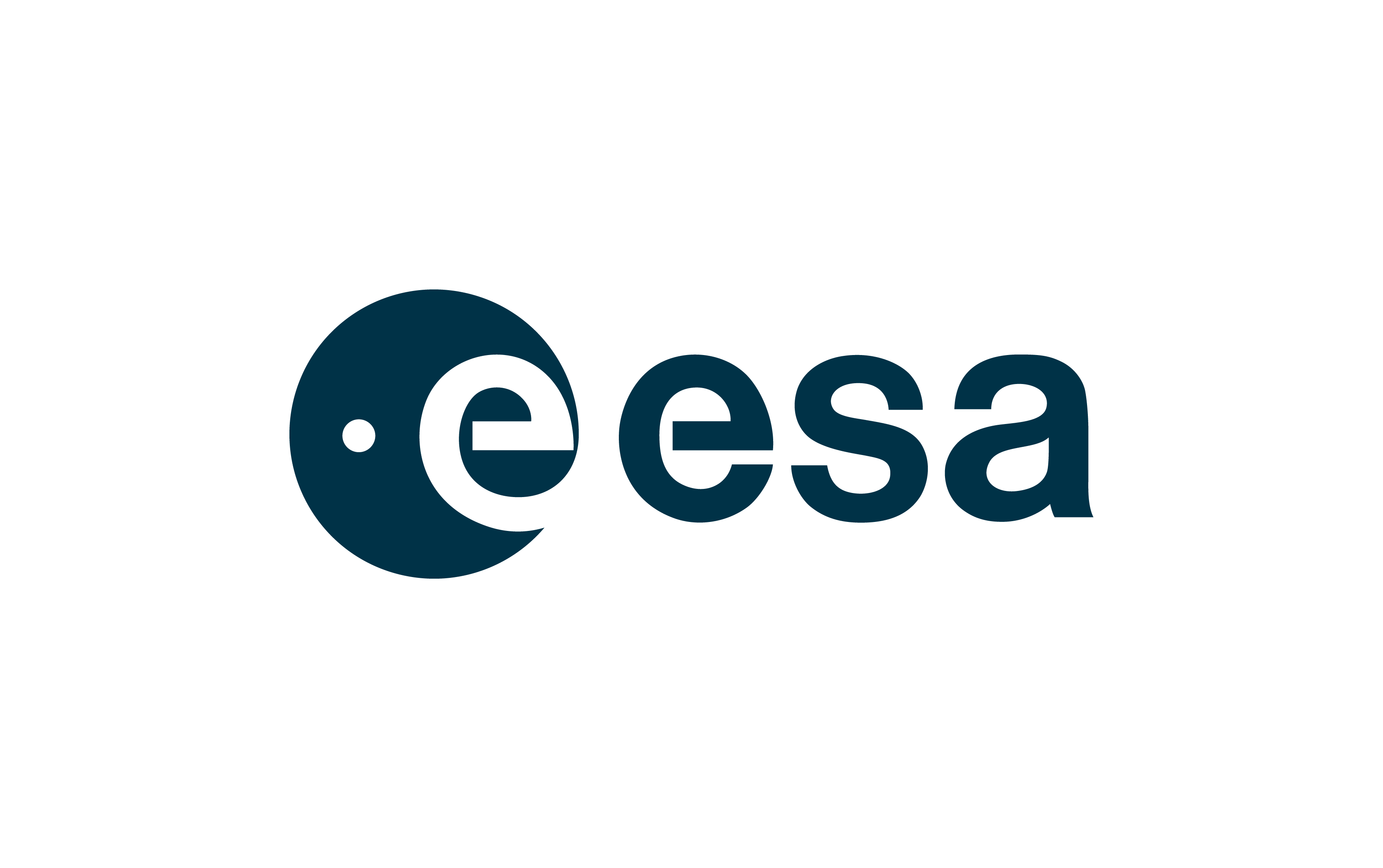 |
This email address is being protected from spambots. You need JavaScript enabled to view it. |
Plasma and magnetosphere Missions: SOHO, Solar Orbiter, Bepi Colombo, Cluster, |
||
 |
This email address is being protected from spambots. You need JavaScript enabled to view it. |
Ice on frozen moons (Europa, Ganymede, Callisto, ...) Missions: JUICE, Cassini-Huygens |
||
 |
This email address is being protected from spambots. You need JavaScript enabled to view it. |
Mars Science and Exploration: surface, atmosphere, ... Missions: Mars Express, Trace Gas Orbiter, ExoMars |
||
 |
This email address is being protected from spambots. You need JavaScript enabled to view it. |
Mercury surface spectroscopy Missions: Bepi Colombo, Messenger |
||
 |
This email address is being protected from spambots. You need JavaScript enabled to view it. |
Asteroids, comets, and cometary dust Missions: Rosetta, HERA |
||
| Málaga | ||||
|
|
Martian environment and materials analysis laboratory and instrumentation Infrastructure: Laboratory Missions: Mars2020/SuperCam |
|||
| |
SpaceRoboticsLab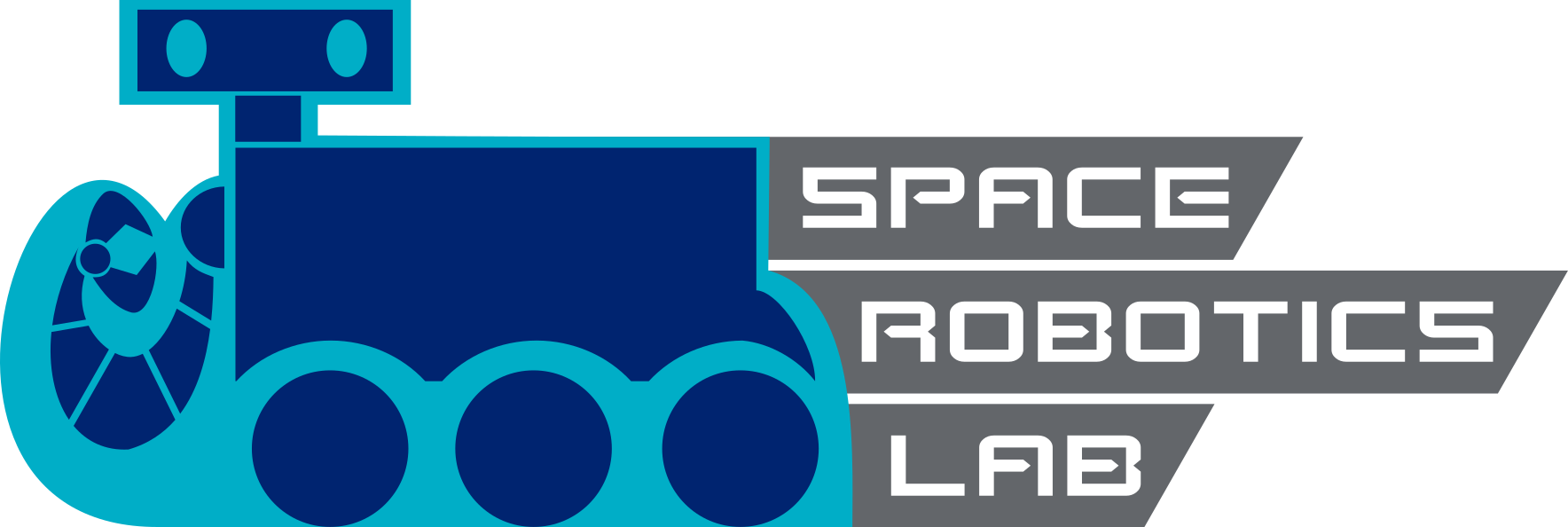 Carlos Pérez del Pulgar |
Space robotics for planetary exploration, autonomy and navigation Infrastructure: Laboratory Missions: ExoMars |
||
| Oviedo | ||||
|
Universidad de Oviedo |
|
Instituto de Ciencias y Tecnologías Espaciales de Asturias (ICTEA)
|
Modelización Matemática Aplicada y Física de Altas Energías |
|
|
Universidad de Oviedo |
Origen y evolución del Sistema Solar |
Hielos, polvo y complejos orgánicos Missions: JWST, New Horizons, OSIRIS-REx, Lucy, Hayabusa2, PRIMA Observatories-Instruments: GTC/OSIRIS, TNG/NICS,LRS, IRTF/SpeX, GEMINI/, WHT/ACAM Others projects: PRIMASS, DiSCo-TNOs, GTO-KBO, SAMBA3, ESSTE-Webb |
||
|
Universidad de Oviedo |
MapPlaneST |
Planetary cartography with remote sensing and spectroscopy Others projects: SIGUE-Mars, LUNATIKA, PALANTARICE, PALBANTAR |
||
| La Palma | ||||
 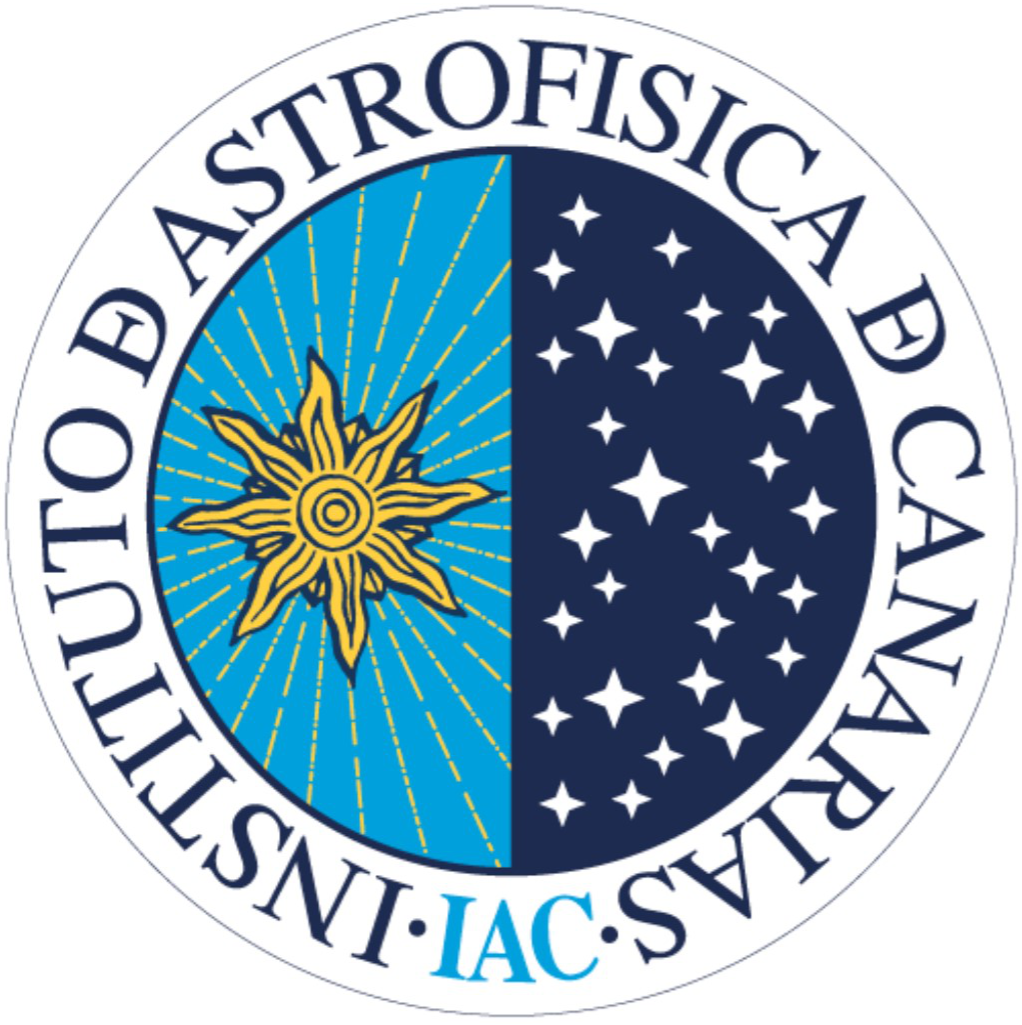 |
This email address is being protected from spambots. You need JavaScript enabled to view it. |
Near Earth Asteroids Others projects: EuroNear |
||
| Porto | ||||
|
Toward the detection and charaterization of other Earths
|
Exoplanet research and Solar System Planet atmospheres Missions: CHEOPS, PLATO, ARIEL, AKATSUKI (JAXA), CASSINI, VENUS EXPRESS Observatories-Instruments: ESPRESSO@VLT, future NIRPS, SPIROU@CFHT, HIRES@ELT Others projects: SWEET-Cat |
|||
|
This email address is being protected from spambots. You need JavaScript enabled to view it.
|
Development of new instrumentation Infrastructure: Laboratory Missions: PLATO, CHEOPS, ARIEL Observatories-Instruments: ESPRESSO@VLT, future NIRPS, HIRES@ELT, |
|||
 |
Planetary Sciences |
Climatology, Meteorites and Asteroids, modelling of reflectance spectra |
||
| Sevilla | ||||
 |
Ciencia y Tecnología del Plasma y el Espacio This email address is being protected from spambots. You need JavaScript enabled to view it. |
Dinámica Atmosférica de planetas del Sistema Solar Missions/Instruments: AKATSUKI/IR1+IR2+LIR+UVI, VEx/VIRTIS+VMC IRTF/SpeX+iSHELL+MIRSI |
||
| Tenerife | ||||
|
|
Pequeños Cuerpos del Sistema Solar This email address is being protected from spambots. You need JavaScript enabled to view it.
|
Small bodies and objects close to the ground Missions: OSIRIS-REx, Gaia, JWST, Euclid, Hera/Dart, CASTALIA, CASTAway, Hayabusa2 Observatories-Instruments: GTC/OSIRIS/EMIR, NOT/ALFOSC, TNG/NICS, INT/IDS,... Others projects: NEOROCKS, NEO-MAPP, CLASS, PRIMASS,EURONEAR, J-PLUS, J-PASS |
||
|
Exoplanetas y Astrobiología |
Exoplanets and astrobiology Missions: CoRoT, Kepler, K2, CHEOPS, XO, WFC, PLATO, ARIEL, TESS Observatories-Instruments: CARMENES, GTC / OSIRIS / EMIR / HORUS, WHT / LIRIS, HARPSN, LCOGT, ... |
|||
|
This email address is being protected from spambots. You need JavaScript enabled to view it.
|
Space instrumentation and telescopes Infrastructure: Instrumentation (optical, electronic, mechanical, SW, space and terrestrial) Missions: Marco Polo-R/THERMAP, Solar Orbiter/SOPHI, Euclid-NISP, PLATO, ISS/IRCAM, ... Observatories-Instruments: GTC, GREGOR, WHT, VTT, TIP II, SUNRISE/IMaX Others projects: CTA, NRT, EST, ELT, OPTICON, OGS, TTNN |
|||
 |
This email address is being protected from spambots. You need JavaScript enabled to view it.
|
Space research and telescopes Infrastructure: Laboratory (Optical, electronic, mechanical, SW, space and terrestrial) Missions: DRAGO-1,DRAGO-2,ALISIO,VINIS,ASTRO-1 Observatories-Instruments: TCS/MuSCAT2, TCS/FastCam, IAC80/CAMELOT2, IAC80/CARONTE |
||
 LightBridges LightBridges |
This email address is being protected from spambots. You need JavaScript enabled to view it. |
Telescopios robóticos terrestres, Centros de Procesamiento para Astronomía e Instrumentación Infrastructure: SW robotización, Optica, Piezas Observatories-Instruments: TTT1, TTT2, TTT3, ASTROPOC |
||
| Teruel | ||||
|
|
This email address is being protected from spambots. You need JavaScript enabled to view it.
|
Spectrophotometric analysis of variable objects in J-PLUS mapping Observatories-Instruments: JAST80/Javalambre Others projects: Javalambre-Time Domain (J-TD) |
||
| Valencia | ||||
|
This email address is being protected from spambots. You need JavaScript enabled to view it. |
Ice and solid characterization laboratory Infrastructure: Laboratory |
|||
| Valladolid | ||||
|
|
Espectroscopía Raman e Infrarroja Guillermo Lopez-Reyes |
Cosmogeochemistry and Astrobiology with Raman and Infrared Spectroscopy Infrastructure: Laboratory Missions: ExoMars/RLS, Mars2020/SuperCam, MMX/RAX Others projects: H2020-Compet “PTAL” (Planetary Terrestrial Analogue Library) |
||
| Vigo | ||||
|
|
Agrupación Aeroespacial - SpaceLab This email address is being protected from spambots. You need JavaScript enabled to view it. |
Development of space technology for satellites Infrastructure: Small satellites Missions: Comet Interceptor |
||
|
|
This email address is being protected from spambots. You need JavaScript enabled to view it. |
Cultural astronomy, observational astrophysics and databases Missions: Gaia |
||
|
|
This email address is being protected from spambots. You need JavaScript enabled to view it. |
Geochemistry of Mars: modeling, mineralogy, laboratory analogs Missions: MSL/CheMin |
||
| Zaragoza | ||||
|
Geodinámica Planetaria This email address is being protected from spambots. You need JavaScript enabled to view it. |
Mars Geology: geomorphological mapping, spectroscopy & subsurface analysis |
|||



